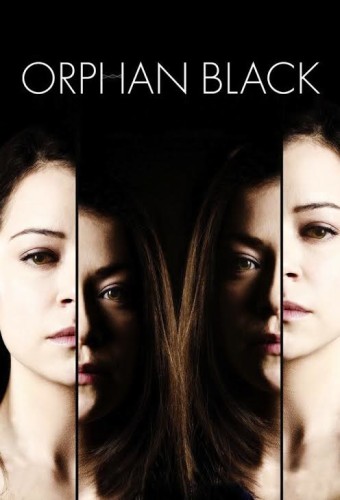This is a guest post by Maria Ramos.
Orphan Black tackles two very different hot-button topics in a way that’s considered entertaining, insightful and groundbreaking: the possible repercussions of cloning and the dynamics of the female personality. Show creators Graeme Manson and John Fawcett are earning praise for breaking decades of television stereotypes that resulted in most female characters either taking a backseat role or displaying a single, overriding personality trait (i.e., the ditzy blonde, the butch female, the submissive housewife). As the feminism in Orphan Black earns praise, however, there’s been some criticism of the show’s underdeveloped male characters–a glaring contradiction that may be intentional.
While Canadian actress Tatiana Maslany plays all five clones, she displays very different, fully developed characters. In fact, it’s the diversity among those characters that adds another dynamic to the brand of feminism portrayed in the series. This has also earned praise from members of the LGBTQA community since two of the clones are openly gay and one is transgender. It’s this same diversity that the showrunners use to make a strong case for nurture over nature by clearly showing that, even with identical DNA, the clones have different personalities, sexualities, and gender identifications obviously fueled by the environments they encountered while developing into the individuals they are now.
In order to fully appreciate the feminism in Orphan Black, it’s necessary to take a look at how female characters have traditionally been portrayed on television, with only a handful of notable exceptions. The Walking Dead presents stereotypical women ranging from the tough-as-nails female out to prove she can kick butt just as hard as any man to the pretty blonde side character apparently only around to entice men. The women on Sons of Anarchy first come off as strong and independent. However, they often lose backbone and bend to the will of the men in their lives. Even a show as groundbreaking (at least when it comes to its male characters) as Modern Family relegates the character of Claire Dunphy to the role of a nagging wife and mother striving for normalcy whose concerns are often dismissed or not taken seriously for the sake of soliciting a few laughs.
The chief criticism of Orphan Black is that the male characters are given one dominating personality trait each while the female clones have complex personalities and not-so-obvious motives for why they’re doing what they’re doing. On the other hand, it doesn’t take much guesswork to figure out the motivations driving the male characters on the show. Manson and Fawcett have made no apologies for the obvious lack of male character development, instead implying that it’s a plot device meant to echo the point the show’s trying to make by intentionally playing up the female characters and downplaying the male roles. This inequality is apparently evident when it’s revealed that the male clones unveiled at the end of the second season were created for military use, suggesting a sole purpose for their existence. It remains unclear why the female clones were created and seemingly left to their devices.
For every Daenerys Targaryen (Game of Thrones) and Alicia Florrick (The Good Wife) there’s a one-note female character playing the token blonde girl or the unattractive smart girl who’s inevitably either a loner or a dateless third wheel. Even the show’s perceived flaws – underdeveloped male characters and strong female characters who sometimes resort to violence to assert their independence – are effective in the sense that these aspects drive conversations not often inspired by shows with lesser-developed female characters in either lead roles or supporting roles without much substance. Orphan Black joins shows like Orange Is the New Black in placing a long overdue emphasis on multidimensional female characters who have a story worth telling. Although the third season came to a close on June 20th, you can still follow these strong multidimensional female characters and rewatch episodes on BBC America on platforms such as Xfinity, DirecTV, or Netflix. Until the fourth season premieres next year, take a look back and appreciate the show for what it is about: women.
Maria Ramos is a writer interested in comic books, cycling, and horror films. Her hobbies include cooking, doodling, and finding local shops around the city. She currently lives in Chicago with her two pet turtles, Franklin and Roy. You can follow her on Twitter @MariaRamos1889.




1 thought on “Feminism in ‘Orphan Black’”
Comments are closed.